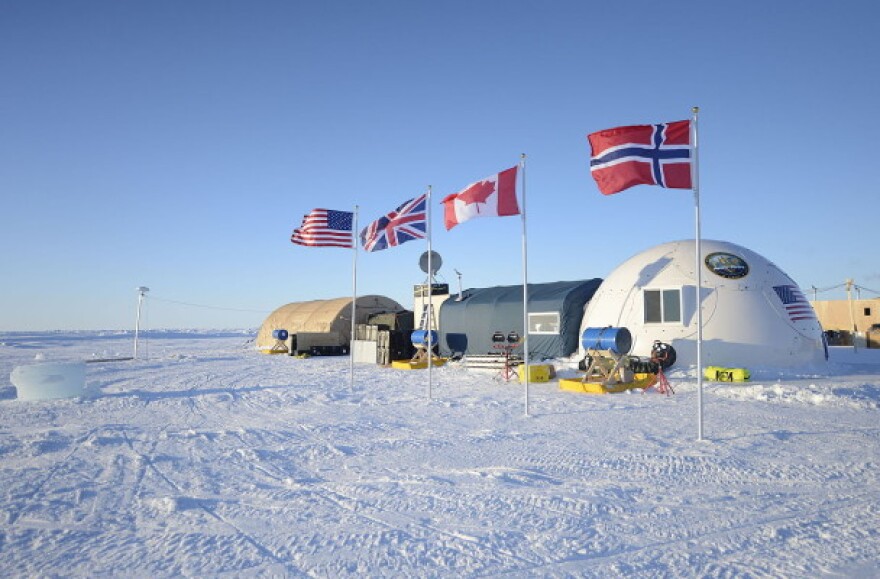A camp constructed by the U.S. Navy on a sea ice floe in the Arctic was evacuated last week. The camp’s early closure coincided with a new record low sea ice extent in the Arctic.
Located about 200 miles off the coast of Prudhoe Bay, the camp was host to American sailors and scientists from around the world.
The Navy has held its Ice Exercise, or ICEX for short, to test military readiness and conduct scientific research in the far north every few years since 1960.
Commander Tommy Crosby is the Public Affairs Officer for the Navy’s submarine forces.
“The camp itself is a temporary camp that is built on an ice floe that is moving,” explained Crosby. “With currents and wind direction and ice rubbing up against each other and moving, cracks do form and refreeze.”
The Navy’s exercise was scheduled to wrap up at the end of this week, but Crosby said changes in sea ice caused the camp to close early.
“We had a crack that got close to camp,” Crosby said, so “for the safety of everyone… we demobilizea little early.”
The crack shouldn’t come as a big surprise. Last week, the National Snow & Ice Data Center reported the lowest maximum sea ice extent in the Arctic in satellite history.
Ted Scambos is the NSIDC’s lead scientist. He says warmer than normal temperatures in the region led to the record low.
“It was unusually warm near the North Pole, up to 6 degrees centigrade,” Scambos explained. “When you’re averaging, over three months, something like an 11 or 12 degree above average mean temperature,a huge deal.”
Scambos said the warmer temperatures didn’t just affect the sea ice extent.
“Not only did the ice not spread out very far from the Arctic Ocean and out into the Beringand North Atlantic, but it’s also probably thinner than it has been in decades past,” explained Scambos.
The U.S. Navy should expect thinner ice conditions. This year’s early closure mirrors what happened two years ago almost to the day, when rapidly changing sea ice forced them to pack up ahead of schedule.
The camp’s more than two hundred participants were evacuated safely. The two submarines involved in ICEX will continue their operations under the thinning Arctic sea ice through early April.
